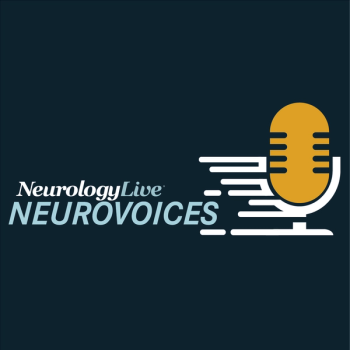
The professor of neurology at the University of Pennsylvania Perelman School of Medicine discussed the state of care for Friedrich ataxia and omaveloxolone’s potential to become its first approved therapy.

The professor of neurology at the University of Pennsylvania Perelman School of Medicine discussed the state of care for Friedrich ataxia and omaveloxolone’s potential to become its first approved therapy.

The director of the Women’s Movement Prevention Center at Cleveland Clinic discussed her new study, and the current knowledge of the role genetics play in Alzheimer disease risk.

The assistant professor of neurology at Harvard Medical School provided insight on how to improve care for posttraumatic headache, as well as limitations and benefits to nerve block surgeries.

The director of the Mayo Clinic Center for Multiple Sclerosis and Autoimmune Neurology discussed unmet needs of care for patients with neuromyelitis optica spectrum disorder.

The director of the Cerebrovascular Center at Cleveland Clinic provided context on why stroke systems should incorporate IV tPA as early as possible to treat emergent large vessel occlusion.

The director of the Comprehensive Center for Brain Health at the University of Miami Miller School of Medicine provided context on greenhouse spaces and their preventive benefits in Alzheimer disease.

The professor of health science at the Medical University of South Carolina discussed robust results from the phase 3 ADMET 2 study evaluating methylphenidate to treat apathy in Alzheimer disease.

The chief medical officer of Cortexyme discussed the company’s investigational agent atuzaginstat, its mechanism of action, and the findings of the phase 2/3 GAIN trial.

The assistant professor of neurology at Harvard Medical School detailed his recent review involving the diagnosis and management of posttraumatic headache with associated cranial neuralgias.

The duo from Cleveland Clinic stressed the reasons for conducting real-world data assessing migraine treatments and why it can lead to the ultimate goal of treatment optimization.

The chief medical officer of Scholar Rock described how the investigational apitegromab aims to fill some of the current unmet needs for patients with spinal muscular atrophy.

The chief medical officer of Scholar Rock provided background on the company’s investigational SMA treatment and its clinical benefit when applied with nusinersen (Spinraza; Biogen).

The pediatric headache specialist at NYU Langone discussed how pediatric migraine is currently treated, the signs and symptoms associated, and whether awareness levels are where they need to be.

The director of the Sleep-Wake Disorders Center at Montefiore Medical Center detailed the overall state of sleep care and the advantages the investigational FT218 brings to the growing pipeline.

The director for the Headache Center of Southern California discussed his research presented at AHS 2021 which evaluated a combination of onabotunlinumtoxinA and CGRPs in patients with chronic migraine.

The founder and chief scientific officer of Neurolutions discussed other populations that may benefit from the IpsiHand Upper Extremity Rehabilitation System by building on its current capabilities.

The neurologist from Banner Health and chief medical officer of the MS Association of America discussed the significance of World MS Day and how clinical care of MS has evolved.

The associate professor and director of the Headache Medicine Fellowship Program at Thomas Jefferson University discussed treatment optimization for patients with migraine and raising overall awareness for preventive treatments.

The founder and chief scientific officer of Neurolutions discussed how the company’s newly approved chronic stroke rehabilitation system will provide expanded benefits to post-stroke patients.

The neurologist from Cleveland Clinic discussed his study presented at AAN 2021 involving the use of responsive neurostimulation in older adults with drug-resistant focal epilepsy and further expanding research in this space.

The assistant professor of neurology at the Weill Cornell Brain and Spine Center discussed his presentation at AAN 2021 evaluating racial disparities in smoking cessation among stroke survivors.

The professor of neurology at Mayo Clinic discussed the need for understanding more about how social determinants of health can impact epilepsy treatment delays.

The chair of neurology and Olemberg Family Chair of Neurological Disorders at the University of Miami Miller School of Medicine discussed solutions to improve disparities in stroke care and the need for future research on social determinants of health.

The consultant in the department of neurology at Mayo Clinic detailed a number of topics surrounding Parkinson Disease Awareness Month, including the progress made in the last 2 decades.

The chair of neurology and Olemberg Family Chair of Neurological Disorders at the University of Miami Miller School of Medicine discussed the abundance of research from the Florida Stroke Registry presented at ISC 2021.

The duo from Montefiore Medical Center discussed a variety of topics surrounding an effort to improve seizure diagnosis and classification in newborns.

The postdoctoral researcher at Columbia University detailed a number of topics regarding the impact concealing multiple sclerosis diagnosis can have on a patient.

The director of the Institute for Health, Health Care Policy and Aging Research at Rutgers University discussed a recently published report on meeting the challenge of caring for persons with dementia and their care partners and caregivers.

The clinical research coordinator at Massachusetts General Hospital discussed his presentation from ACTRIMS 2021 on electronic pill bottle monitoring to promote MS medication adherence.

The duo from Cleveland Clinic discussed their recently initiated study which will evaluate the neuroprotective features of home-based intervention in high-risk individuals for Alzheimer disease.